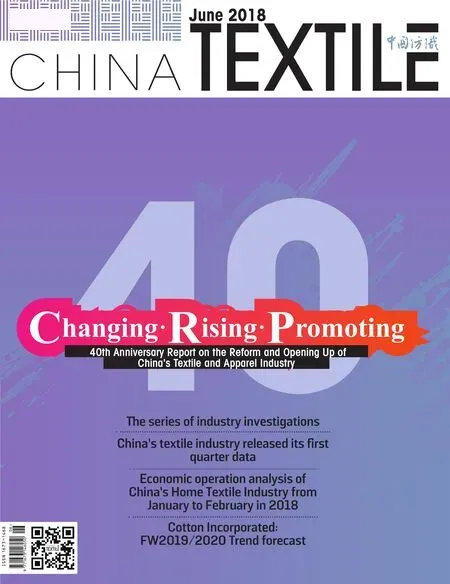Dear readers:
Amid on-going trade dispute between the United States and China over the trade asymmetry, China has once again decided to cut tariffs on a series of merchandises, beginning to take effect on July 1st, as a proactive and constructive step to address the trade issues now challenging the global multilateral trading system, regardless of the Trump Administration’s surprise decision to move forward with tariffs and sanctions against China.
China’s new move to cut tariffs on many categories, including apparel, footwear and caps that have decreased average tariff level from 15.9 percent to 7.1 percent. The move significantly demonstrates China’s commitment to the opening policy both in enlarged size and breadth as is stated by President Xi Jinping at BOAO FORUM for Asia 2018, who emphasized China’s further opening in domestic market, allowing international investors and trading partners more access to financial regime, especially in bank, bonds and insurance, intensifying intellectual property (IP) protection and enforcement, enlarging imports, leveling the playing field for fair competition.
While China’s efforts are applauded, the U.S. government seems to ask for more, turning out to be capricious and impetuous in changing the bilateral trade “cease fire” agreement to declare imposition of tariffs on 50 billion dollars of imported goods from China. The detailed list of goods that come under fire will be brought to public somewhere in the middle of this month, we do not know if there are any textile and apparel tariff lines at this moment when I am writing this letter. I believe the Trump Administration’s on-again, off-again strategy on China may backfire to some extent, which is clearly expressed by Chinese stance. To impose tariffs on U.S.imports from China is not a good solution to the trade problem. This stance is also seen in many trade associations in America. On March 8, American Apparel and Footwear Association (AAFA) made statement at 2018 Special 301 Public Hearing, saying “As the Administration pursues its Section 301 investigation, we urge that it proceeds cautiously. While we agree that there are significant IP concerns in China, we also stress that China remains an invaluable trading partner for our members and our industry. For this reason, I want to be clear that we do not think tariffs are a solution to this issue. China remains an important and growing market for U.S.-exported and U.S.-branded goods. For example, China remains a top market for U.S. exports of cotton and is a fastgrowing market for U.S. branded goods that are made globally and sold in China. Many U.S. jobs are supported through these trade and investment links too. Steps to address Chinese IP practices must be taken to ensure that these supply chains, and the U.S. jobs that support them, are not interrupted by U.S. actions or Chinese retaliation.”
This proposition is also backed up by multi-industry post-hearing comments: “We continue to believe that the proposed tariffs would be counterproductive and undermine the Administration’s efforts to change China’s policies and practices. Tariffs will harm U.S. businesses, farmers, workers and consumers”. The post-hearing comments are undersigned by 52 trade associations, covering a wide spectrum of businesses. With this, I can see what is necessary to be testified is a win-win solution rather than a wayward action.
- China Textile的其它文章
- A good start for China’s national economy in the first quarter of 2018
- Demand for European technical textiles attracts leading companies to Cinte Techtextil China
- Sun Ruizhe Deepening reform and opening up and building a textile power
- Gao Yong No end to the reform, a new start for the industry
- Changing·Rising·Promoting 40th Anniversary report on the Reform and Opening Up of China's Textile and Apparel Industry
- 2018. 05 Released by Cotton Incorporated

